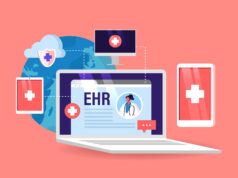The coronavirus has shined a disturbing light onto one of our nation’s deadly sins: the overcrowding and underfunding of emergency rooms and frontline health services across the country.
The chief of Disaster and Operational Medicine at George Washington University penned an op-ed titled, “I am an emergency doctor. I expect to get coronavirus.” Meanwhile, reports have been emerging that local and state health departments have seen their emergency preparedness budgets cut by a third since 2003.
These frustrated pleas from our nation’s frontline medical professionals have been brewing for years. A study in the Annals of Emergency Medicine found that urban emergency departments were at maximum capacity – in 2008. And in 2017, another study found that nearly half of all medical care in the US is now being performed in emergency departments. Maybe you’ve heard the horror stories of people dying during an hours-long wait to be seen.
Not just viruses
The problem is now bigger than emergency departments. It goes right down to your local poison control hotline and medical toxicologists – many of whom are now being called on to answer public hotlines in Utah, North Carolina, Illinois, Kentucky, and New Jersey, with more states likely to follow suit.
These centers are seeing a surge of calls, and not just related to the disease itself: in Florida, for instance, there’s been a concerning increase in hand sanitizer-related poisonings.
Toxicologists have been here before. They witnessed a slower – yet perhaps even more deadly – crisis when trying to help victims of the opioid epidemic that still rages across the US. Toxicologists, whether in emergency departments, on the other end of a poison control line, or elsewhere, saw the systemic nature of these overdoses before anyone else. They raised the alarm, but to little avail. Like emergency medicine doctors and local health departments, a consistent underinvestment in their services stifled the value these first responders could provide.
Periodically our nation’s poison control centers have to validate their existence to federal and state legislatures who seem to forget the work they do as one of our first lines of healthcare defense. In 2011 Congress almost cut nearly all funding for poison control centers in the U.S. This is despite decades of studies showing that for every dollar spent on poison control, cost savings of $6 to $36 are earned. That’s if the human cost of failing to support frontline medical professionals wasn’t obvious enough.
Emergency rooms make great fodder for movies and television programming, and the physicians working there are justifiably lauded. Around them are teams that don’t get as much attention, and frankly are not compensated in the same manner. They include pharmacists, nurses, and medical toxicologists who provide the expertise and labor that allow us to respond to sudden crises.
They even include community groups who come to realize the importance of these teams and work to ensure they are supported, even if it takes local fundraising to make sure the right tools are on hand. Frankly, it may end up being a medical toxicologist who saves you if you attempt to use a dangerous “alternative” coronavirus solution that ends up making you sicker.
A bigger problem
Our country needs a better awareness of just how important frontline medical professionals are, and just how underfunded they continue to be. Whether its opioid overdoses or coronavirus patients, they see things first and play a crucial role in our healthcare system’s ability to react to pandemics, viral and otherwise.
Ultimately, the dust will settle on the coronavirus. Life will go on. But it would be a shame if we didn’t take away a fundamental lesson, one that ER doctors, toxicologists, academics, and others have been trying to tell us for years: our frontline medical professionals need more support – today, tomorrow, and well in advance of the next crisis that will assuredly come our way.
Photo: Motortion, Getty Images








